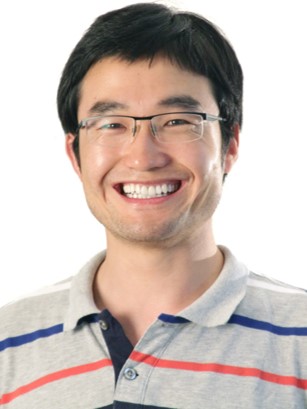Invited Speakers
Devis Tuia (Senior Member, IEEE) received the Ph.D. degree from the University of Lausanne, Lausanne, Switzerland, in 2009. He was a Post-Doctoral Researcher with Valéncia, Boulder, CO, USA, and École polytechnique fédérale de Lausanne (EPFL), Lausanne. From 2014 to 2017, he was an Assistant Professor with the University of Zurich, Zürich, Switzerland. He then was a Professor at Wageningen University, Wageningen, The Netherlands. Since 2020, he has been an Associate Professor at EPFL-Valais, Sion, Switzerland. His research interests include machine learning and computer vision for spatial data and in particular studying new concepts for AI4EO to make images more accessible and models more understandable.
Konrad Schindler (M’05–SM’12) received the Diplomingenieur (M.Tech.) degree from Vienna University of Technology, Vienna, Austria, in 1999, and the Ph.D. degree from Graz University of Technology, Graz, Austria, in 2003. He was a Photogrammetric Engineer in the private industry and held researcher positions at Graz University of Technology, Monash University, Melbourne, VIC, Australia, and ETH Zurich, Zürich, Switzerland. He was an Assistant Professor of Image Understanding with TU Darmstadt, Darmstadt, Germany, in 2009. Since 2010, he has been a Tenured Professor of Photogrammetry and Remote Sensing with ETH Zurich. His research ¨ interests include computer vision, photogrammetry, and remote sensing.
Dengxin Dai is a senior researcher at MPI for Informatics, where he heads the research group Vision for Autonomous Systems. He also works with the Computer Vision Lab at ETH Zurich on the research project TRACE-Zurich for Autonomous Driving. In 2016, he obtained his PhD at ETH Zurich under the supervision of Prof. Luc Van Gool and Prof. Gerhard Schmitt. During the PhD study, he was working on the project VarCity for City Modeling based on camera data. His research interests include autonomous driving, semantic scene understanding, bad weather/lighting conditions, sensor fusion, domain adaptation, multi-task learning, and multi-modal learning. He was/is area chair for WACV 2021, CVPR 2021, and CVPR 2022, and was lead guest editor for IJCV.
Detailed Workshop Program
All posted times are EDT.- 8:00 - 8:05 AM Welcome, Introduction
-
8:05 - 8:50 AM Invited Speaker 1: Devis Tuia
Talk Title: Geospatial deep learning that you can query and understand - 8:50 - 9:05 AM Oral Presentation1: Nicholas M Kashani Motlagh, Aswathnarayan Radhakrishnan, Jim Davis, Roman Ilin. A Framework for Semi-automatic Collection of Temporal Satellite Imagery for Analysis of Dynamic Regions
- 9:05 - 9:20 AM Oral Presentation2: Huiming Sun; Yuewei Lin; Qin Zou; Shaoyue Song; Jianwu Fang; Hongkai Yu. Convolutional Neural Networks Based Remote Sensing Scene Classification under Clear and Cloudy Environments
- 9:20 - 9:30 AM Break
-
9:30 - 10:15 AM Invited Speaker 2: Konrad Schindler
Talk Title: Towards global high-resolution biomass maps - 10:15 - 10:30 AM Oral Presentation3: Stefan Wolf; Jonas Meier; Lars Sommer; Jürgen Beyerer Double Head Predictor based Few-Shot Object Detection for Aerial Imagery
- 10:30 - 10:45 AM Oral Presentation4: Xiaochen Zheng; Benjamin Kellenberger; RUI GONG; Irena Hajnsek; Devis Tuia Self-Supervised Pretraining and Controlled Augmentation Improve Rare Wildlife Recognition in UAV Images
-
10:45 - 11:30 AM Invited Speaker 3: Dengxin Dai
Talk Title: All-Season Semantic Scene Understanding - 11:30 - 11:45 AM Oral Presentation5: Chen WeiTao; Zhibin Wang; Hao Li Get better 1 pixel PCK: ladder scales correspondence flow networks for remote sensing image matching in higher resolution
- 11:45 - 12:00 AM Oral Presentation6: Nouman Ahmed; Sudipan Saha; Muhammad Shahzad; Muhammad Moazam Fraz; Xiaoxiang Zhu Progressive Unsupervised Deep Transfer Learning for Forest Mapping in Satellite Image
- 12:00 - 12:10 AM Presentation of LUAI challenge results and awards
- 12:10 - 12:15 AM Closing remarks


